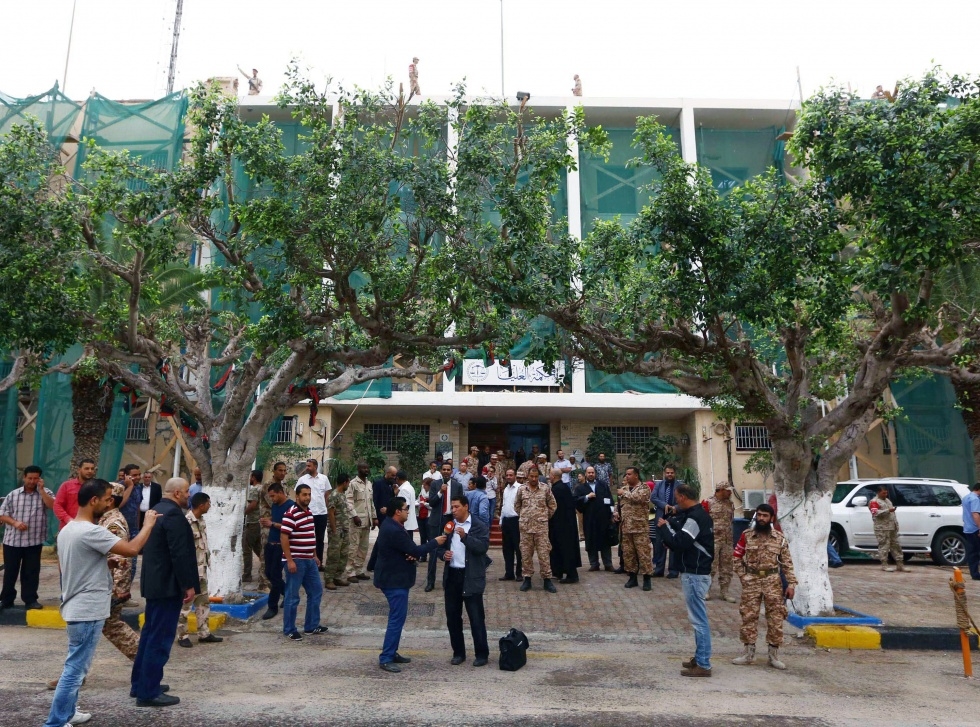Libya supreme court invalidates elected parliament
Supreme Court ruling invalidates legality of Libya's elected parliament that has been operating out of Tobruk

Libyan lawyers, journalists and security forces gather outside the Supreme Court on 6 November (AFP)
Published date: 13 February 2015 04:00 GMT
|
Last update: 9 years 9 months ago
Libya's Supreme Court has ruled that the elected House of Representatives (HOR) parliament is invalid, according to news reports.
Human Right's Watch's Libya researcher Hanan Salah explains the decision is based on a ruling that the passing of the election law was unconstitutional.
Salah tweeted the Supreme Court's decision means "according to the court, HOR has no legality. Full details & reasons behind decision not yet public".
The House of Representatives was elected in June and since August has been based in Libya's eastern port city of Tobruk, near the border of Egypt, after militias took over the capital city, Tripoli.
H.A. Hellyer, a non-resident fellow in Middle East policy at Brookings, a Washington DC-based think tank, said of the court's ruling: "It will not be lost on anyone that the Court deliberated in Tripoli, where Fajr militias are in control."
The Fajr militias, known as Libya Dawn in English, are a loose alliance of Islamist militias. They took control of the capital and pushed the elected, internationally recognised government east.
Libya has two governments and parliaments, one which is internationally recognised, and the other which is not. The General National Congress, dominated by Islamists, has selected its own prime minister to challenge the authority of Prime Minister Abdullah al-Thinni, whom the United Nations and Western powers recognise.
Fighting among various militia and factional groups has dirupted the oil-producing North African country's democratic transition, since the ouster of its former dictator president Muammar Gadaffi in an uprising in 2011. International observers fear the country could break out into civil war.
New MEE newsletter: Jerusalem Dispatch
Sign up to get the latest insights and analysis on Israel-Palestine, alongside Turkey Unpacked and other MEE newsletters
Middle East Eye delivers independent and unrivalled coverage and analysis of the Middle East, North Africa and beyond. To learn more about republishing this content and the associated fees, please fill out this form. More about MEE can be found here.




